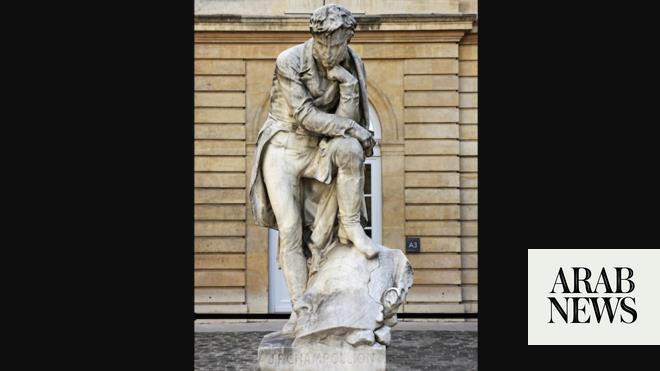
More than a thousand protesters have gathered outside Oxford University to demand the removal of a statue of the Victorian imperialist Cecil Rhodes.
Blocking the road outside Oriel College, the Rhodes Must Fall campaign said Black Lives Matter (BLM) protests across the UK, which included the dramatic toppling of a statue of the slave trader Edward Colston in Bristol, had reignited their campaign.
Riot police stood on the roof of the college building while the crowd below the Rhodes statue listened to speeches, including the announcement of a BLM protest in Oxford on Friday. The demonstration ended peacefully with people leaving their signs on the outside of the building, while there were cheers as a police officer briefly took a knee in the crowd.
In 2016, hundreds of Oxford students campaigned for the removal of a likeness of the controversial 19th-century figure – who supported apartheid-style measures in southern Africa – from the wall of the college. The campaign also called for the university curriculum to be changed to reflect diversity of thought beyond the western canon.
The university said then that the statue would stay, with modifications that “draw attention to this history [and] do justice to the complexity of the debate”. It had been warned that it could lose about £100m in gifts should the statue be taken down, but it insisted financial implications were not the primary motive behind its decision.
In a statement released on Tuesday, Oriel College said it “abhors racism and discrimination in all its forms” and that it would “continue to debate and discuss the issues raised by the presence on our site of examples of contested heritage relating to Cecil Rhodes”.
The campaign to remove the statue was supported this week by the Liberal Democrat MP Layla Moran and the leader of the local council.
Femi Nylander, an organiser for Rhodes Must Fall, welcomed the support from the council, Moran and the thousands who signed the petition to remove the Rhodes statue.
He said: “It’s good to see public consciousness is changing. We are seeing a paradigm shift. You can see that everywhere.” He added that he hoped the protest would result in a resurgence of the Rhodes Must Fall movement in Oxford.
Simukai Chigudu, an associate professor of African politics at the University of Oxford, said the phrase “black lives matter” resonated because of “a history of white supremacy that has denigrated, exploited and subjugated black lives”.
He added that Rhodes Must Fall, which he joined in 2015, had been started by student activists in South Africa who were “tired of colonial iconography, tired of white supremacy in our curriculums, tired of the crisis of representation of black and other minority ethnic people in our institutions”.
A PhD student, Ndjodi Ndeunyema, 30, said: “We reject this narrative that Cecil Rhodes is a complicated character. No, he is a genocidaire, he is someone who planned an assault [on] Africa and he is not worthy of exaltation, he does not deserve to be on a high street looking down on us. That history will never be erased, it’s a lived reality for people in southern Africa, but it needs to be contextualised, it needs to be accurately represented and not glorified in the way it is today.”
He said the protest went further than calling for the removal of the statue, it was also about meaningful equality “for the black community, given the moment we are in, but also people of colour and people on the social and economic fringes of any society”. He called for justice for the Windrush generation, describing the scandal as a “substantive policy manifestation of anti-blackness”.
There was a significant police presence before the protest, with police vans and officers on horses.
A PhD student who did not want to be named said: “We are here today as students, community members and community-based organisations who believe in democracies, who believe in the valuation of all lives equally and who believe in the removal of colonial iconographies that we must all inhabit.
“We’re here to say to the University of Oxford, Oriel College and other colleges in Oxford that still demonstrate in support of the values we disagree with, that it is time to take a stand. If you are truly anti-racist and pro-good race relations and inclusion of black and ethnic minority students then today is the day to put your money where your mouth is.”
Kate Whitington, the Oriel College junior common room president, said: “Oriel College must not be blind to its legacy of colonialism and racism in association with Cecil Rhodes. Despite claims that clear historical context about the Cecil Rhodes statue would be provided in order to acknowledge and educate our students on the imperialist past, the subject remains taboo and Oriel’s continuing silence equal to complicity in the perpetuation of white privilege and supremacy.”












